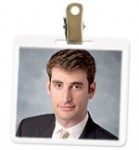In last week’s episode, this blog’s all-time favorite character returned with gifts. And when I say “gifts,” I mean gifts for the writers of this blog; not so much for the Scranton branch. That’s right, Dunder Mifflin’s all-time leader in litigation liability for the company, Todd Packer, returned to the show for (what just has to be) his final hurrah.
The disgruntled former employee returned ostensibly to apologize as part of a 12-step process. Pam quickly sees that he is just insulting his former co-workers “in the form of apologies.” Nevertheless, Packer provides cupcakes to make up for his past behavior. Although the cast members initially agreed not to, everyone except Pam ended up eating the cupcakes. Of course, the cupcakes were all laced with different drugs including laxatives and hallucinogens.
While the story line was relatively funny, unannounced (and disgruntled) employees returning to the workplace can be extremely dangerous. According to the U.S. Bureau of Labor Statistics, there were 458 workplace homicides in 2011 (78% involved a shooting). In Minneapolis last year, an employee who was terminated earlier in the day returned to shoot and kill his former supervisors at Accent Signage Company. The tragedy was especially sad (and personal) for this writer because the company owner was such a model citizen, family person, and innovative entrepreneur.
In addition to dealing with the personal side of these tragedies, companies often face tort liability. The primary theory here is that the company acted negligently in failing to protect its employees. While a state’s Workers’ Compensation Act may limit a company’s exposure, the analysis will almost always be fact-intensive (i.e., expensive to litigate). We recommend instituting a workplace violence prevention program for every company before tragedy strikes.
Finally, Packer’s offensive and harassing behavior–even though he is no longer an employee–can still result in liability for Dunder Mifflin. See Bronner v. Catholic Charities of Roman Catholic Diocese of Syracuse, Inc., 2010 U.S. Dist. LEXIS 23805, (N.D.N.Y. Mar. 15, 2010) (“Courts have held that an employer may be found liable for the harassing conduct of non-employees . . . if the employer knew or reasonably should have known of the harassment yet failed to take appropriate corrective action”). Thus, Andy Bernard’s lack of action while Packer continued his harassing behavior may lead a court to conclude that Dunder Mifflin should be held responsible for this behavior under the theory that “the employer either ratifies or acquiesces in the harassment by not taking immediate and/or corrective actions when it knew or should have known of the conduct.” Folkerson v. Circus Circus Enters., Inc., 107 F.3d 754, 756 (9th Cir. 1997).
In short, Packer’s return has (not surprisingly) put the company in a precarious situation (again). But you certainly didn’t need to read this post to know that Todd Packer’s return wasn’t going to be good news for Dunder Mifflin.


